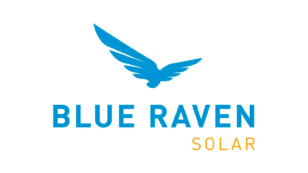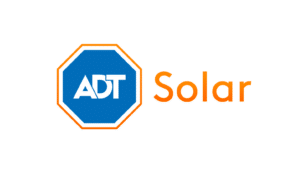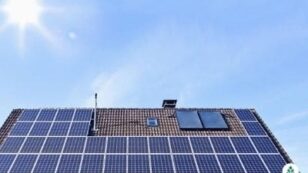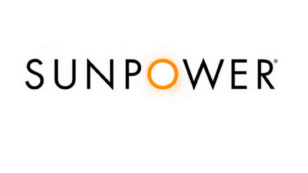
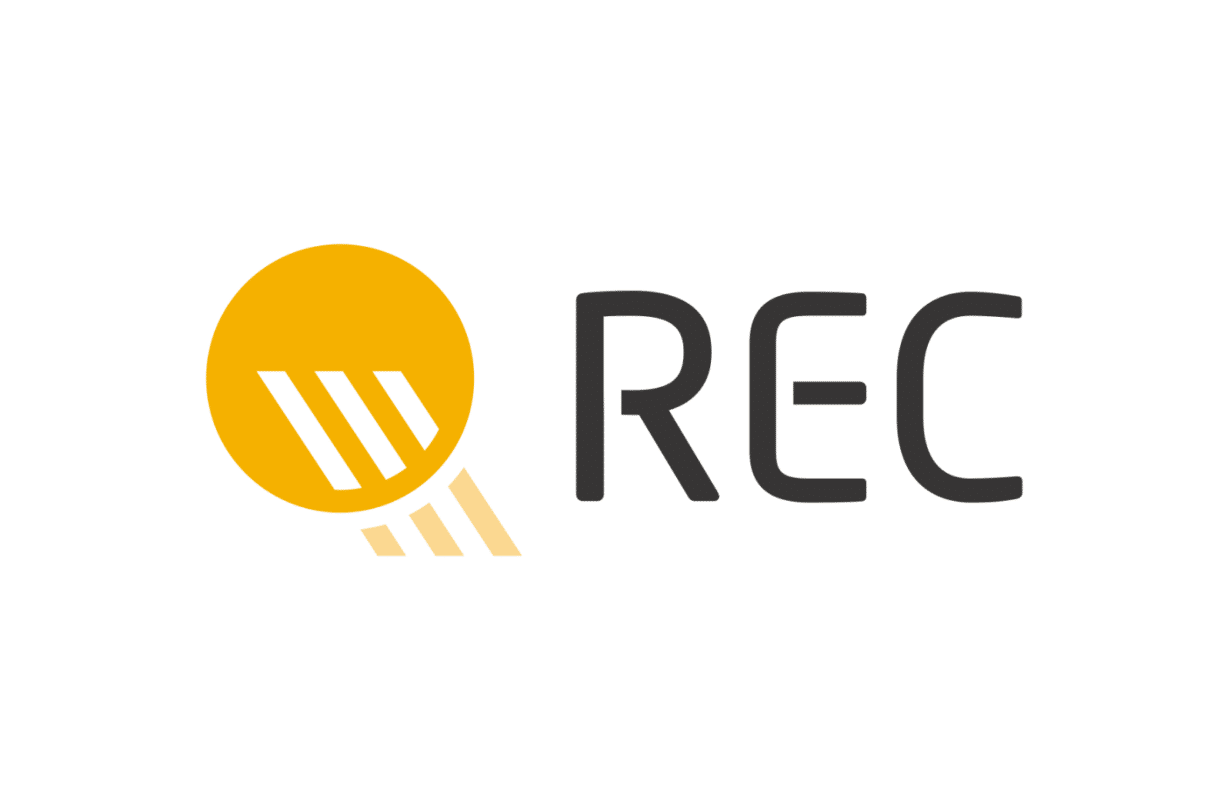
REC Solar Panels Review (2024 Cost, Efficiency & Performance)
Here’s what you need to know about REC:
- EcoWatch Rating: 4.5 Stars
- Efficiency: 19.1% to 22.2%
- Power Rating: 360 W to 410 W
- Warranty Length: 20 to 25 Years
Each product and or company featured here has been independently selected by the writer. You can learn more about our review methodology here. If you make a purchase using the links included, we may earn commission.
REC is based in Norway and has offices in the U.S., Asia, Europe and Australia. It is one of the most prominent brands of solar panels in the United States, and it ranks as one of the best solar panels for homes, specifically for reliability. Choosing the right solar panel for your specific home and energy needs is complicated, though, and REC certainly isn’t ideal for everyone.
In this REC solar panel review, we’ll take a look at the quality and cost of REC solar panels, plus the warranty coverage, longevity and more to help you figure out if this is the right brand of photovoltaic (PV) equipment for your solar project.

REC Solar
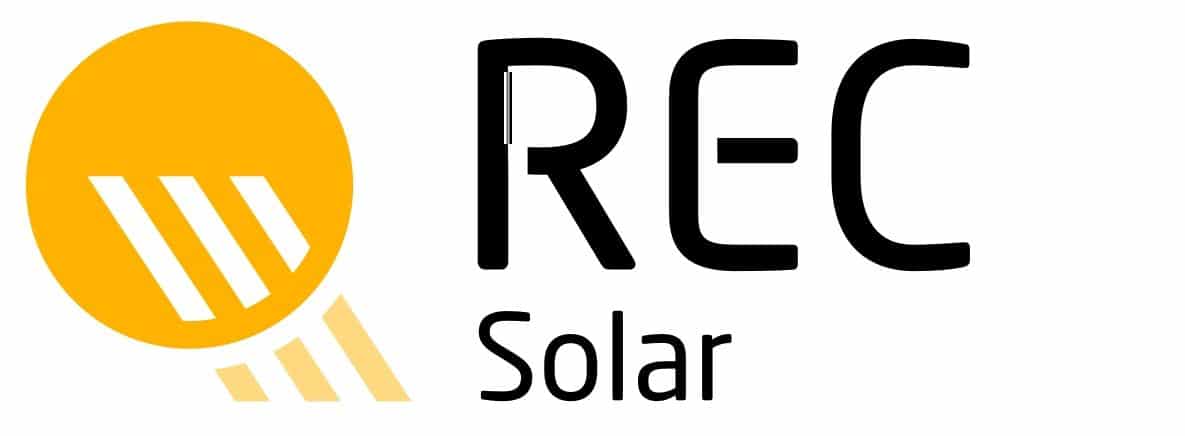
Average cost
Pros
- Highly efficient
- Durable panels
- Rigorous testing standards
- Work well in high temperatures
Cons
- Can be slightly expensive
Does REC Make Good Solar Panels?
Overall, REC manufactures high-quality, monocrystalline (mono) solar panels that provide excellent value for the money. We routinely rank REC solar modules as some of the best solar panels available for residential solar systems.
REC panels have an above-average efficiency rating to help maximize energy savings, as well as performance specifications that are better than you’ll find from most manufacturers. REC panels tend to outperform the competition, but they maintain pricing per watt that’s lower than what you would expect from a company like SunPower/Maxeon.
In the following sections, we’ll take a look at the different models of solar panels available from REC and explain what we like and dislike about each.
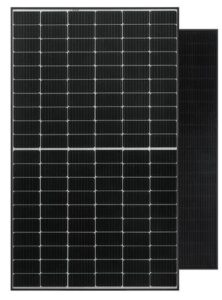
REC Twinpeak 4 Solar Panels
The Twinpeak 4 solar panels are the most affordable option from REC and the only ones that use P-type solar cells since the Twinpeak 2 panels are no longer available. P-type solar cells use boron embedded in the silicon, leaving the cell positively charged. P-type cells make for less efficient solar panels and less durable panels than N-type and heterojunction (HJT) cells, but they’re more affordable as well.
The Twinpeak 4 line of panels has a maximum efficiency of 20.5%, which is above the industry average but the lowest you’ll see from REC. They come in sizes ranging from 375 watts (W) to 370W.
REC N-Peak 2 Solar Panels
The N-Peak 2 series panels from REC include N-type cells, which use phosphorus embedded in the silicon wafers rather than boron. This leaves the cell negatively charged, improving performance. These solar cells have better longevity and durability than the Twinpeak 4 series, but they also come at a higher cost.
The N-Peak series are said to reduce light-induced degradation (LID), which should help improve panel performance and reduce power loss over time.
The N-Peak 2 panels also top out at 20.5% efficiency, and they’re only available in one size: 365W.
REC N-Peak 3 Black Solar Panels
The N-Peak 3 panels also include N-type solar cells, but these are TOPCon cells, which typically have a higher performance potential. They come with an efficiency rating of between 19.5% and 20.3%, making them a little less efficient than the previous two entries.
The N-Peak 3 panels from REC are the first generation from the manufacturer to be all-black and lack visible grid lines. Most homeowners prefer the aesthetics achieved with these features. However, they are a little more expensive than the N-Peak 2 series. These are larger panels at between 390W and 400W.
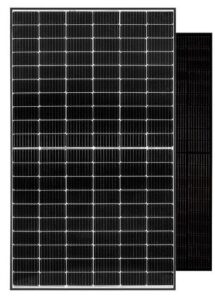
REC Alpha Pure Solar Panels
The Alpha series of panels from REC are the most affordable heterojunction cell option. HJT panels combine solar technology from two different solar cell types to make panels more efficient and reach a higher power density per panel. The technology allows the Alpha panels to reach peak efficiency ratings of 21.3%, putting them well ahead of the previous options.
The Alpha Pure panels from REC come in sizes between 385W and 410W. Perhaps most notably, they won the Intersolar Award of 2022, which speaks to their efficiency, performance and durability.
These award-winning panels are all black and lack visible grid lines, so they are as aesthetically pleasing as they are powerful. They’re also made entirely lead-free.
REC Alpha Pure-R Solar Panels
The most expensive option from REC Alpha Series is the Alpha Pure-R. These also contain HJT solar cell technology, but they are optimized to provide the highest efficiency rating and power production capabilities available from the manufacturer. These top out at 22.3%, which is well above the industry average and lands REC among the highest-efficiency panel brands available.
The Alpha Pure-R series has the highest power output capabilities from REC, coming in at between 410W and 430W. They are all black and don’t have any visible grid lines, so they are desirable from an appearance standpoint as well as a performance point of view. These panels are also lead-free, much like the base Alpha Pure panels.
What Technology Does REC Use In Its Solar Panels?
REC has been developing solar technology since 1996, and it’s known for a handful of innovations and advancements that have been adopted by other manufacturers. For the most part, REC uses tech that is found in panels made by other manufacturers as well, but there are some standouts when it comes to REC panel technology.
We’ll include some of the innovations and technological advancements attributed to and used by REC in the following sections.
Solder-Free Connections Between Half-Cut Cells
Perhaps most notably, REC was one of the first solar panel manufacturers to introduce solder-free connections between its half-cut cell technology. This accomplishes a few things that help boost panel performance.
First, soldering joints are notoriously weak, so they are some of the most likely internal components to fail. Eliminating soldering joints means you’ll see panel damage and a reduction of overall efficiency much less often. This tech helps improve panel longevity and durability.
Additionally, the new connections used in REC panels allow the cells to overlap on the edges. This helps improve the efficiency of the panel overall by increasing the number of active solar cells per square inch. The REC Alpha Pure panels have 132 solar cells, compared to an industry average closer to 96 cells.
Four-Part Junction Box
REC also makes use of four junction boxes on the outside of some of its panels. Having multiple junction boxes allows for parts of each panel to continue producing usable electricity at full capacity, even when the other parts of the panel are not producing.
This technology is helpful for boosting overall panel performance in partially shaded conditions. A REC panel containing a four-part junction box can continue producing sufficient energy even when ¼, ½, or ¾ of the panel is in full shade.
REC is certainly not the only manufacturer to implement this technology, but it is credited as one of the technology’s early adopters.
How Do REC Solar Panels Perform in Different Climates?
REC panels perform better in all climates than most other panels. This is thanks to the high efficiency rating of its products and the low temperature coefficient that REC prides itself on.
REC panels top out at a 22.3% efficiency rating, which is well above the industry average and higher than most tier-one panel brands out there. A higher efficiency rating means a greater level of production in all situations.
REC panels also come with a below-average temperature coefficient. All solar panels lose efficiency in higher temperatures because excited electrons are more likely to escape the panel. The temperature coefficient of a panel tells you how much of the starting efficiency a panel will lose per degree above 25 degrees (C).
REC solar panels have an average temperature coefficient of 0.32%/degree (C), which is below the industry average of 0.35%. That means that REC panels will lose less efficiency in higher temperatures, making them a better option than most in hotter climates. This is especially true since the manufacturer has an above-average starting efficiency.
Does REC Make Any Other Solar Products?
REC manufactures solar panels and solar cells, but it doesn’t offer solar cells for use in off-brand panels. It also doesn’t manufacture batteries, inverters or other products related to solar panels.
How Much Do REC Solar Panels Cost?
The cost of REC solar panels depends on a lot of factors, including your location, the line of REC panels you purchase and more. However, the average cost of REC panels is around $3.67 per watt, which is above the industry average cost of $3.33 per watt.
For the standard 9 kilowatt (kW) solar array, it would cost you, on average, around $33,030 before the federal credit or $23,121 after the credit to install a REC solar panel system. This is $3,060 or $2,142 above the national average before and after the federal credit, respectively.
REC panels are relatively expensive, but they do deliver above-average performance. They generate more power than most panels, which can translate to greater energy savings and a shorter panel payback period overall.
REC Financing Options
REC doesn’t handle its own installations and instead focuses on solar panel manufacturing. That means that you’ll need to hire a third-party solar contractor that has a relationship with REC in order to get REC panels installed. This is the process you’d need to follow with most solar panel manufacturers.
As such, your financing options will depend on the solar professional you choose. Some will offer all four primary payment options — cash purchases, solar loans, solar leases and power purchase agreements (PPAs) — but others will only accept a subset of those options.
We recommend a cash purchase for any customer that can afford it. Paying for your panels in cash is expensive upfront, but it lets you avoid paying interest — as you would with a loan — which means your total system cost remains as low as possible. Cash purchases also let you take the federal investment tax credit (ITC), which provides an average potential value of $8,991.
We suggest a loan if you can’t make a cash purchase work and a lease if you won’t qualify for a loan. Generally speaking, we suggest avoiding PPAs. PPAs don’t let you take the federal credit, provide fewer savings than a lease and aren’t much more accessible than leases.
How Can You Save Money on REC Solar Panels?
Since REC panels come with an above-average price per watt, most homeowners who choose this brand will look for ways to save money on their systems. There are three primary ways you can keep costs down when you choose a provider that installs REC panels. We’ll discuss these money-saving strategies in the following sections.
Take All the Solar Incentives You Can
The easiest and fastest way to save money on your REC solar panel system is to take advantage of all of the solar incentives available to you.
All homeowners in the U.S. will have access to the federal solar tax credit, which provides a potential effective savings equal to 30% of your total system cost. Since REC panels are more expensive than most other brands, your ITC value will be around $918 higher than it would be with most other manufacturers. In total, the ITC could save you an average of over $9,000.
Many states, municipalities and electric companies also offer local solar incentives that can apply to REC solar power systems. We recommend you check the Database of State Incentives for Renewables and Efficiency (DSIRE) for local incentives and rebate programs to help you save on renewable energy conversion.
Choose the Best Payment Option You Can Afford
Another easy way to save on your REC solar system is to take the time to choose the payment option that is most beneficial and fits within your budget.
If you can afford to pay for your REC system in cash, this will yield the shortest panel payback period and the highest long-term savings overall. The next best option for maximizing your savings is to choose a solar loan, which often requires minimal or no money down but still keeps your average savings around $25,000 after the panels pay for themselves.
Leases and PPAs save between $4,000 and $5,000 over the lifespan of your system, so while they’re still beneficial, they’ll save you much less over time.
Get Multiple Quotes
Finally, since REC doesn’t handle its own installations, a great way to save on your solar conversion is to get multiple quotes from companies that partner with REC and install its PV equipment.
No matter which manufacturer you choose, the installer you pick to provide your panels will play a role in your total system costs. We suggest you get a few quotes from different providers to see which one offers the lowest costs and the best overall value.
REC Solar Panel Warranty
REC includes a manufacturer’s warranty with all of its panels, which covers manufacturer defects for 20 years and panel performance for 25 years. This is a little shorter than most other companies offer for equipment, but the 25-year performance warranty is above average.
We should mention that the 20-year product warranty gets bumped up to 25 years if you choose a REC-certified installer and get the REC ProTrust warranty. Certifications require specific training and installation protocols that generally lead to a safer installation overall.
The performance warranty guarantees that your panels will lose no more than 2.5% of their starting efficiency over the first year of operation, which is right in line with the industry average. Unfortunately, the degradation per year thereafter is no more than 0.5%, which is slightly above the industry average of 0.4%.
Still, since REC offers a higher solar panel efficiency than most other panel brands, we expect your REC panels to have a higher efficiency rating than most other brands after two decades thanks to the 20-year product warranty from REC and the 25-year performance warranty.
REC doesn’t include a workmanship warranty with its panels since it doesn’t oversee the labor required to install them. You’ll have to check with your installer for a labor warranty. Just for reference, the average workmanship warranty lasts for ten years.
Generally speaking, REC panels are expected to last for between 20 and 25 years, and some might continue producing sufficient energy for your home for even longer.
How to Get REC Solar Panels Installed
REC is strictly a solar panel manufacturer, so it doesn’t handle panel installations in any capacity. To get solar panels from REC on your home, you’ll need to find an installer that operates in your area that carries REC panels, and request a quote. We’ll include a detailed list of steps below to help you navigate the process of going solar.
- Step 1 — Request a quote: Your first step will be to reach out to a solar installer that services your area to request a quote. The representative will likely ask for a copy of a recent energy bill, as well as some information about your energy consumption.
- Step 2 — Consultation and property inspection: Next, your installer will send a representative to complete a property inspection. You should plan on being home for this inspection, as the rep will need to get access to your roof to take measurements, and they might need to enter your home to inspect your electric meter, your water meter and any areas where you’re having add-on products installed, including solar batteries and electric vehicle (EV) chargers.
- Step 3 — Contract approval: Next, you’ll receive your formal solar proposal and be asked to sign it. This proposal will include cost information for your system, plus schematics for where solar equipment will be installed and a general timeline for the installation.
- Step 4 — Permitting and planning: Once you sign your solar proposal, your installer will start filing for permits to install your system and order the REC panels if they’re not in stock.
- Step 5 — Installation: After your permits are squared away, your installation will be scheduled. On the day of installation, you’ll need to be home to provide interior access. The installation typically takes a single day, but your system could take longer based on local weather conditions and the add-on products you choose.
- Step 6 — Inspections and interconnection: After your REC solar panels and any add-on products are installed, your solar contractor might need to schedule inspections with your local building department to close out permits and your electric company to get you hooked up to the grid. This last step is required for interconnection and net metering, which you definitely want to take part in if possible.
- Step 7 — Solar monitoring: Finally, your solar installer might set you up with a solar monitoring app or software, depending on which type of inverters and batteries you have installed. REC panels can work with a variety of inverter, microinverter and battery brands, but the two most popular apps for solar monitoring — for customers who don’t get SunPower panels installed — are the Enphase and Tesla mobile apps.
The table below includes a quick look at some of the best solar companies that offer REC panels and how they compare to one another.
| Momentum Solar | Palmetto Solar | Trinity Solar | |
| Year Founded | 2009 | 2009 | 1994 |
| Areas Served | 11 States | 23 States | 9 States |
| Better Business Bureau (BBB) Rating | A+ | A+ | A+ |
| Services Offered | Solar panel and battery installations | Solar panel and battery installations | Solar panel and battery installations; energy efficiency upgrades |
| Payment Options | Cash, solar loans, leases and PPAs | Cash, solar loans, leases and PPAs | Cash, solar loans, leases and PPAs |
| Relative Cost ($-$$$$$) | $$$ | $$$ | $$$ |
| Workmanship Warranty Offered | 25 years | 10 years | 5 years |
| Overall Rating (Click for Review) | 4.5/5 | 4.5/5 | 4/5 |
Since every installer that offers REC panels will differ greatly, we suggest getting a few different quotes from installers in your area and comparing them to find the best value. You can use the tool below to get instant quotes for your PV system.
Customer Reviews of REC Solar Panels
Unfortunately, it’s very difficult to parse reviews for REC panels since so many installers offer them, and most customers leave reviews for the installer and not the manufacturer. With that being said, we did scan as many reviews as possible for installers that provide REC panels and those that mention REC panels to get a sense of what customers think of the brand.
As expected, there were plenty of positive reviews related to the panel production and energy savings, but most of the negative reviews pertained to issues with the installer, specifically. We’ll provide a breakdown of what we read in the following sections.
Positive Reviews of REC Solar Panels
Customer reviews for installers that provide REC panels sometimes mentioned the high performance and above-average solar savings where REC equipment might be involved. Most customers don’t note which panels they have installed, but overall, the companies that predominantly install REC panels have few complaints about the panel performance.
Some customers mention that the panel production exceeded their expectations, but again, it’s hard to determine if the positive reviews are a reflection of REC, specifically, or the installer as a whole.
With that being said, the general consensus in the solar industry is that REC panels are high-power and tend to last a long time.
Negative Reviews of REC Solar Panels
There are lots of negative reviews for installers that work with REC panels, but we expect that the majority of these are regarding issues with the installer and not with the equipment itself.
We did compare negative reviews for REC installers to see how often there were performance issues with the panels, and it does seem like the instance of REC-related problems is below average. It’s hard to gauge this, but we trust the overall positive perspective on REC panels.
REC vs Other Solar Panel Manufacturers
REC panels provide an above-average efficiency rating and better performance specifications than many other manufacturers. Overall, we think SunPower/Maxeon panels provide the best performance and durability for the money, but REC is right up there with the best solar panel brands overall.
The table below includes a comparative look at REC panels and other major brands in the industry that many solar customers consider.
| REC | Panasonic | Silfab | SunPower | Tesla | |
| Max Efficiency Rating | 22.3% | 22.2% | 21.4% | 22.8% | 20.6% |
| Power Tolerance | -0%/+5% | -3%/+3% | -0%/+10% | -0%/+5% | -0%/+5% |
| Temperature Coefficient | -0.32% | -0.26% | -0.39% | -.027% | -0.3% |
| Degradation Per Year (After 1st Year) | 0.5% | 0.26% | 0.5% | 0.25% | 0.5% |
| Equipment Warranty Term | 20 years | 25 years | 25 years | 40 years | 25 years |
| Efficiency Warranty Term | 25 years | 25 years | 25 years | 40 years | 25 years |
| Average Price Per Watt | $3.67 | $3.90 | $3.67 | $4.00 | $3.90 |
| Panel Manufacturer Review | – | – | Read Our Silfab Panel Review | Read Our SunPower Panel Review | Read Our Tesla Panel Review |
Bottom Line: Would We Put REC Solar Panels On Our Roof?
REC panels provide an above-average efficiency level and durability that would make us comfortable installing them on our own roof. They come with solid manufacturer’s and efficiency warranties, which helps ensure you’ll continue saving and avoiding panel problems for decades after you convert to solar energy.
Our top recommendation for most solar customers is the Maxeon panels from SunPower, but REC provides a more affordable panel option that still brings above-average quality, consistency and panel longevity.
Whether you think REC panels are the perfect option for your home solar system or not, we recommend getting multiple quotes for your array. You can use the tool below to get solar installation quotes customized for your home immediately.
Methodology: How We Reviewed REC Panels
When we look at different solar panel brands, we take great care to ensure we’re only recommending the best products out there for homeowners. We assess each manufacturer based on six different criteria, which we believe are the most important for your overall experience and energy savings. We’ll explain the different factors we use below.
- Panel Efficiency (25%): The starting efficiency of a panel tells you how much of the available sunlight your panels can absorb and convert to usable electricity for your home. The higher the efficiency, the greater your energy savings will be for a given system size. REC panels reach efficiency levels of 22.3%, which is significantly higher than most manufacturers. In fact, only Maxeon and LONGi panels boast a higher efficiency rating.
- Panel Durability (20%): All panels decrease in efficiency over time, but the more slowly your panels degrade, the more likely they are to guarantee energy savings over time. Since panels last for 25 years, on average, you want a minimal degradation rate to ensure you continue to save year after year. REC’s degradation rate is in line with the industry average for the first year and is just over the average for subsequent years.
- Warranty Coverage (20%): Solar equipment is expensive no matter which installer or manufacturer you choose, and having solid warranty coverage can mean the difference between maximized long-term savings and money lost in the event of panel malfunction or underperformance. REC provides an equipment warranty that lasts for 20 years, which is shorter than the industry standard 25-year product warranty. However, the production warranty lasts for five years longer than most other manufacturers offer.
- Cost (20%): Since the average solar system in the U.S. totals around $29,970 before incentives, we take the average per-watt cost into consideration when ranking panels. Equipment with below-average prices ranks higher, as they remain more accessible overall. REC panels cost around $3.67 per watt, which is above the national average. As such, the company loses some points in this area.
- Temperature Coefficient (10%): Panels with a lower temperature coefficient lose less of their starting efficiency in hotter temperatures and are, therefore, better equipped to provide sufficient power in hotter climates. REC panels have a below-average temperature coefficient of 0.32%. Since they also have an above-average base efficiency rating, that means they’ll provide more power to homes than most other panel brands in just about any climate.
- Sustainability and Appearance (5%): Finally, we consider the sustainability and appearance of the panel brands we review. REC panels use recycled material during production, and the company has an end of life (EoL) recycling program to improve sustainability over time. Plus, most of the panel options from REC are all black and don’t have visible grid lines, both of which are preferred by most solar customers.
The cost information presented in this article is derived from a comprehensive analysis, incorporating data from multiple industry sources. The average cost per watt per state was calculated based on figures from Consumer Affairs, Energy Sage, and Berkeley Lab’s Electricity Markets & Policy Department. Additionally, monthly energy consumption and the average monthly cost of electricity were sourced from the U.S. Energy Information Administration, ensuring a well-rounded and accurate representation of the information presented.

 233k
233k  41k
41k  Subscribe
Subscribe 





